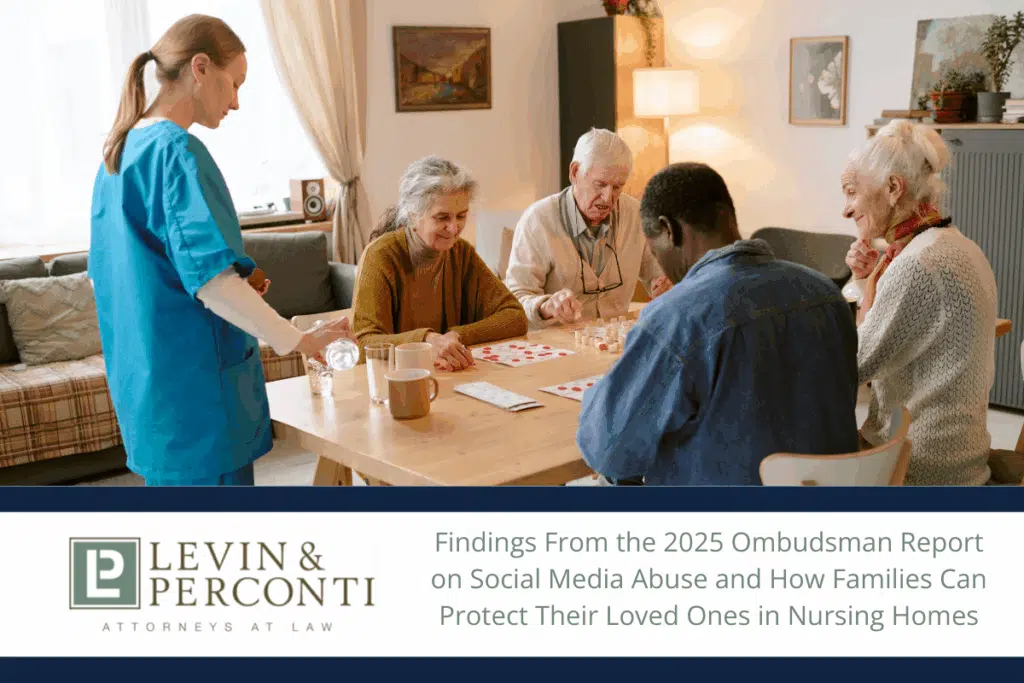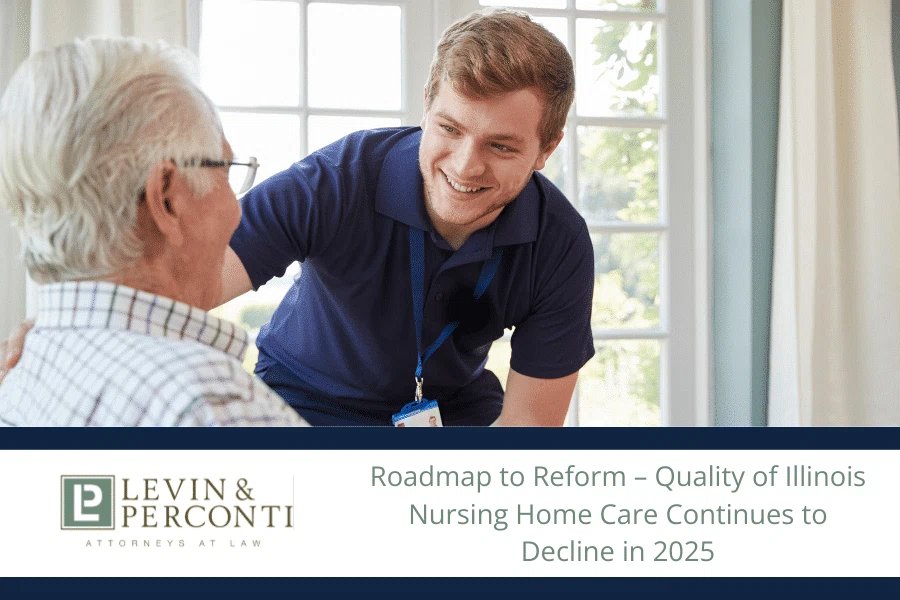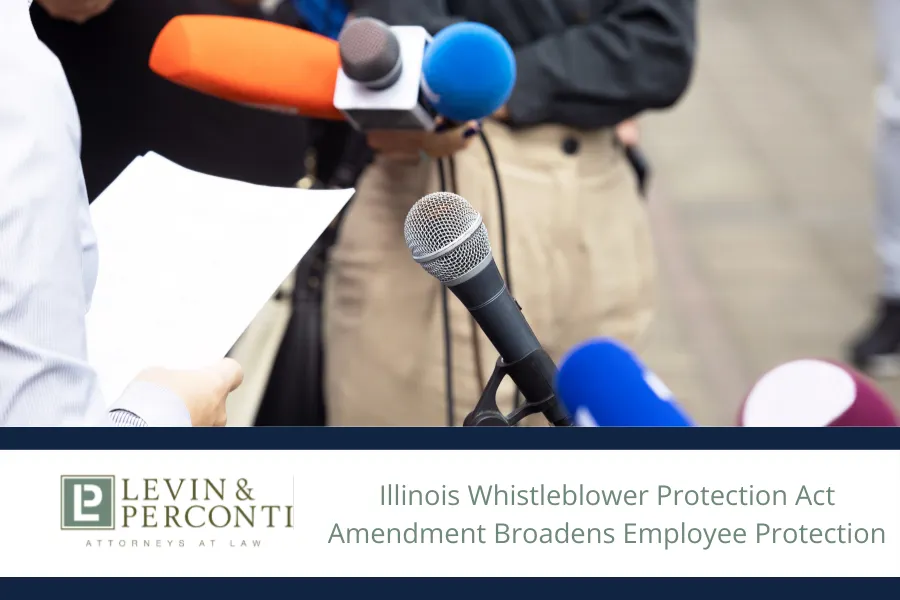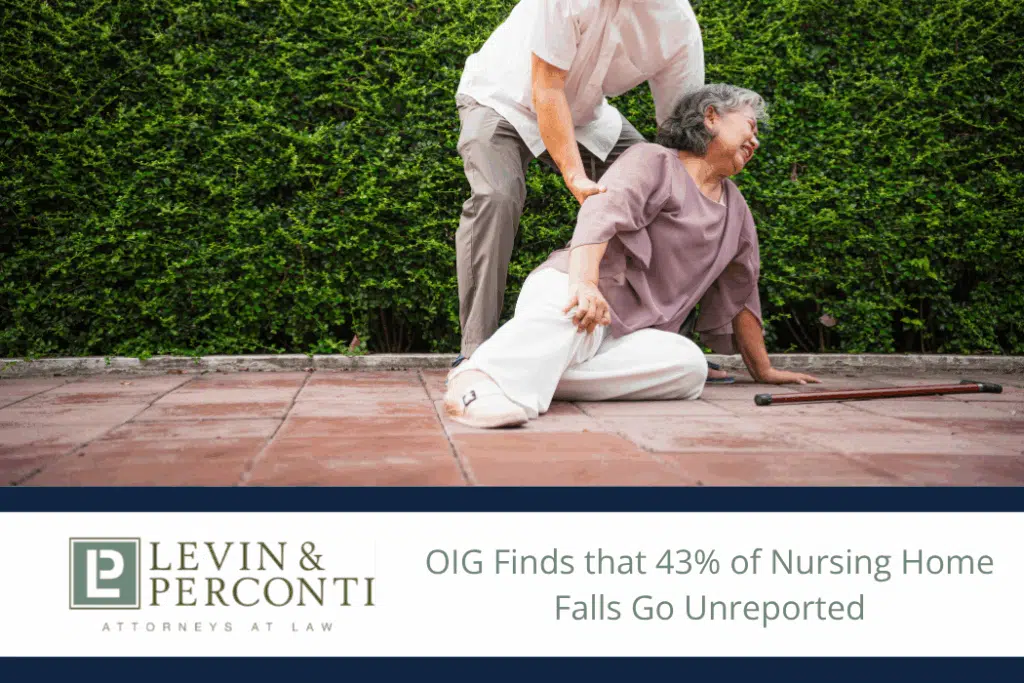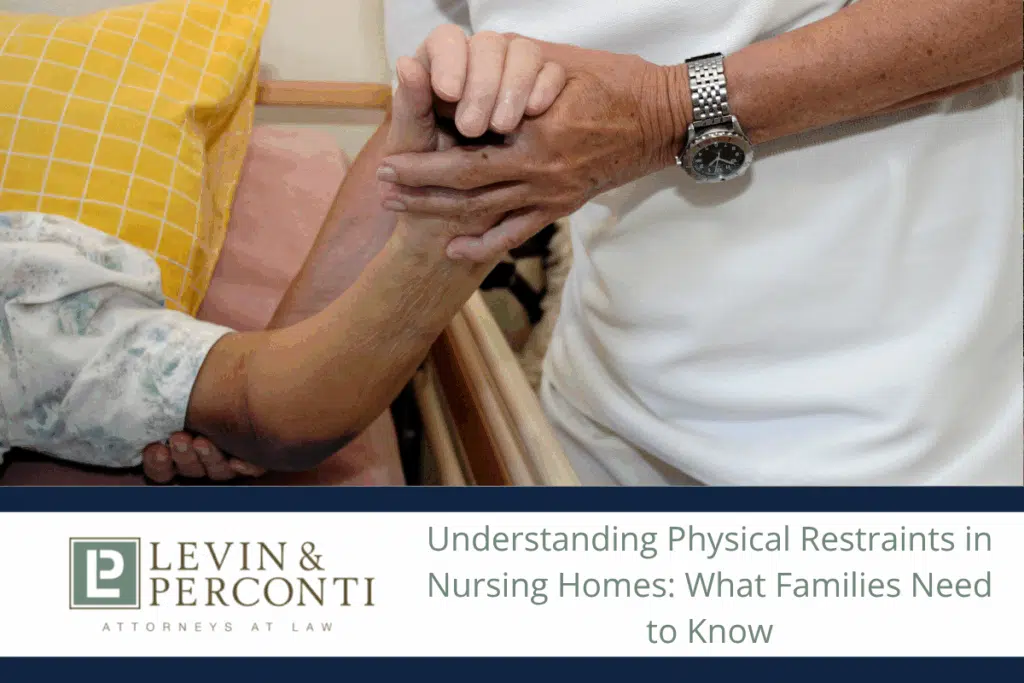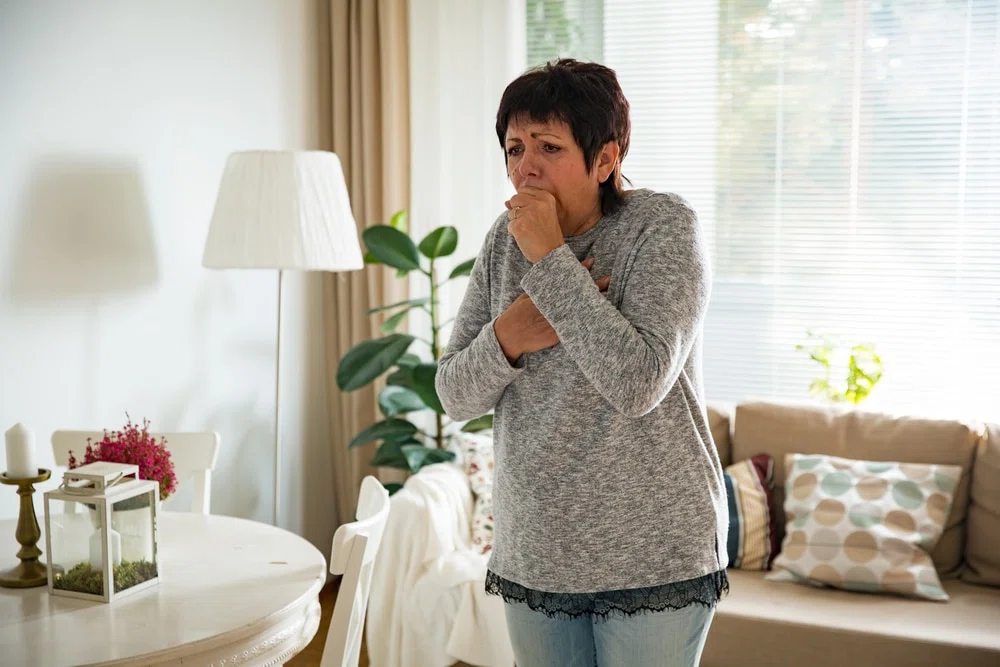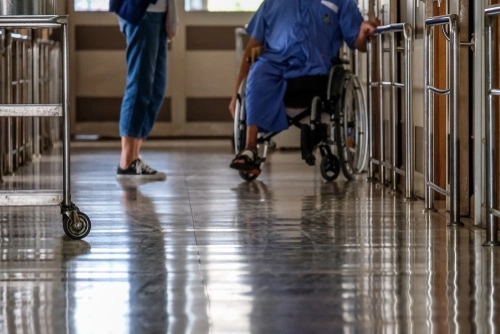Nursing Home Overmedication Lawsuit

Overmedication in nursing homes occurs intentionally and unintentionally due to staff shortages and inadequate training. Intentional overmedication is often done to keep residents docile for the staff’s convenience. Such actions reduce residents’ quality of life, accelerate their decline, and increase the risk of death. There is no justification for overmedicating nursing home residents. If your loved one has been overmedicated in a nursing home, our nursing home overmedication lawyers can help.
Home | Nursing Home Abuse & Neglect | Nursing Home Overmedication Lawsuit
Quick Links
- What Can You Do If Your Loved One Is Overmedicated in a Nursing Home?
- What Are the Warning Signs of Overmedication in Nursing Homes?
- Long-Term Complications of Overmedication in Nursing Homes
- What Are the Causes of Overmedication in Nursing Homes?
- Is Overmedication Considered Nursing Home Abuse in Illinois?
- How Can Overmedication in Nursing Homes Be Prevented?
- What Are My Legal Rights Regarding Overmedication in Nursing Homes?
- How Much Time Do I Have To File a Lawsuit for Overmedication in a Nursing Home?
- Get a Free Case Evaluation for Your Nursing Home Overmedication Case
Overmedication in a nursing home occurs when a resident receives medication for non-medical purposes or a legitimate medication in a dosage higher than medical guidelines recommend.
Nursing homes intentionally overmedicate residents as a means to sedate those regarded as high maintenance. Medications used for this purpose are known as chemical restraints. This practice blatantly jeopardizes patient health and safety for staff convenience and to maximize profits for wealthy nursing home providers.
Unintentional overmedication is a medication error that occurs when a patient is accidentally given the wrong medication or receives an overdose of a prescribed drug. Sometimes, a physician prescribes an excessive dose of a single medication or prescribes too many different medications in general.
Whether intentional or unintentional, overmedication in nursing homes is always inexcusable. It is almost always a symptom of inadequate staff training and understaffing in nursing homes.
Nursing homes have a legal duty to provide a safe, hospitable environment where residents enjoy the highest possible quality of life without being drugged into unconsciousness. If your loved one has been harmed in a skilled nursing facility by unnecessary drugs, our nursing home abuse lawyers can help you sue a nursing home for overmedication.
What Can You Do If Your Loved One Is Overmedicated in a Nursing Home?
A nursing home resident who is overdrugged may be unable to speak out due to the drug’s effects. Even when they can speak out, nursing home residents are often afraid to do so out of fear of retaliation by the staff they rely on to care for their daily needs and administer their medications.
If you suspect a nursing home resident is suffering from overmedication, you may be their only hope. Speak up and force the facility to address the issue to protect the nursing home resident.
Documenting and Gathering Evidence
Nursing home residents in Illinois have a right to see their medical records within 24 hours of a request. They are also entitled to purchase copies for a reasonable copy fee. If you have the appropriate Power of Attorney or written consent from the resident, you can also view and purchase these records.
The medical record will allow you to view what medications your loved one has been prescribed, the dosages, and the diagnosis associated with each prescription. They can provide valuable evidence when your loved one is intentionally overmedicated.
You should also document any unusual behavior in the resident or suspicious medication administration practices you observe. Your notes could be helpful to your attorney when your loved one has been accidentally overmedicated since these incidents may not show up in the patient records.
Communicating with Nursing Home Staff
You may gain some evidence about your loved one’s medications by speaking with nursing staff, including any CNAs who regularly care for your loved one. If you have been named an agent under a Power of Attorney, the nursing staff can answer specific questions about the resident’s medications.
If you have concerns about medications the resident receives, voice them to the nursing home administrator.
Involving Regulatory Authorities
Overmedication in a nursing home is a form of nursing home abuse, and it is important to report it to the appropriate authorities. It is not necessary to have proof of abuse to make a report. A suspicion is sufficient cause to file a complaint against an Illinois nursing home. The Illinois Department of Health will investigate your complaint.
You can file a complaint by telephone, email, or fax. The telephone number for the Illinois Central Complaint Registry Hotline is (800) 252-4343. If you believe your loved one is in imminent danger, don’t wait for an investigator. Call 911.
Seeking Legal Assistance
If you suspect your loved one has experienced harm from overmedication in a nursing home, our nationally recognized nursing home abuse lawyers can help. We can investigate your concerns, help you alert the authorities, and file a nursing home abuse lawsuit to seek damages for your loved one’s resulting medical costs, emotional distress, and suffering.
What Are the Warning Signs of Overmedication in Nursing Homes?
The warning signs of overmedication in nursing homes may vary based on the type of medication involved and your loved one’s reaction to it. In general, overmedication may cause the following:
- Behavioral and personality changes
- Cognitive impairment and confusion
- Physical symptoms and health decline
Psychopharmacologic drugs are commonly overprescribed in nursing homes and account for many of these symptoms.
Behavioral and Personality Changes
Changes in a nursing home resident’s personality or behavior patterns could be an effect of a health condition, but it could also be a red flag of overmedication. If you see any of the following changes, you should suspect overmedication:
- Sleeping most or all of the time
- Increased distress or agitation
- Increased restlessness
- Fearfulness
- Frustration
- A zombie-like appearance
- Loss of personality
Cognitive Impairment and Confusion
You may notice an increase in confusion, forgetfulness, and other signs of cognitive decline when your loved one has been overmedicated. In some cases, the increased sedation can cause disorientation and an inability to keep track of time. Long-term use of psychotropic medication has been linked to accelerated cognitive decline.
Any patient regarded as difficult by nursing home staff may be intentionally drugged. However, dementia patients are the most likely to receive inappropriate psychotropic drugs, and this can make it more difficult to determine whether the effects are a natural progression of dementia or an effect of overmedication. Telltale signs are an accelerated rate of decline and sudden, unexpected changes.
Physical Symptoms and Health Decline
Overmedicated residents may exhibit a range of physical symptoms that they did not previously have, including the following:
- Urinary dysfunction
- Orthostatic hypotension, which is a form of low blood pressure when sitting or lying down
- Pneumonia
- Cardiac arrhythmias
- Changes in gait
- Drooling as a result of excessive saliva production
- Weight gain
- Involuntary movements of the face and jaw
- Muscle spasms
- Involuntary movements of the face and jaw
- Muscle spasms
- Constipation
- Inflammation of the heart
- Increased susceptibility to infections
- Skin irritation
- Physical pain
- Paralysis
Serious symptoms such as heart attacks and strokes may also be warning signs of overmedication, but these are often attributed to old age. If your loved one has experienced any of the above behavioral, cognitive, or physical symptoms and also suffered a heart attack or stroke, overmedication may be the cause.
Long-Term Complications of Overmedication in Nursing Homes
While properly prescribed medications have numerous benefits, the use of virtually every medication also carries risks, even when used properly. These risks are magnified when medication is inappropriately prescribed or overused. It only takes one overdose to result in death or irreparable bodily harm.
The following long-term complications may arise from overmedication in nursing homes:
- Liver failure
- Cognitive decline
- Kidney damage
- Increased risk of falls
- Reduced bone density
- Increased frailty
- Heart damage
- Increased risk of stroke
Sometimes, these complications may persist even after the medication is stopped. Our skilled and compassionate nursing home overmedication lawyers can help you hold the nursing home accountable if your loved one suffers permanent harm from overmedication.
What Are the Causes of Overmedication in Nursing Homes?
Almost all instances of overmedication in nursing homes are rooted in understaffing and undertraining, which create a domino effect leading to medication errors and intentional overmedication. Understaffing and undertraining often result when wealthy nursing home providers underfund nursing homes to squeeze out as much profit as possible.
Nursing home residents pay the ultimate price. The effects of understaffing and undertraining include inadequate medication management and inappropriate use of medication as chemical restraints.
Although government regulations mandate safe medication policies and procedures, enforcement is often inadequate. Furthermore, no state or federal measures meaningfully regulate staffing levels.
Financial Incentives for Overmedication
Wealthy corporations own many nursing homes and maximize profits by deliberately underfunding the facilities. They limit the number of staff they hire and hire inadequately trained staff to pay lower wages.
As much as 90 percent of the direct care residents receive is provided by the lowest-paid workers—CNAs. While CNAs are dedicated workers, they lack the training that registered and licensed practical nurses have. The law allows them to work in nursing homes for up to four months before completing training. They may be assigned to dispense medication even when not qualified.
CNAs and nurses are often plagued by high patient ratios, resulting in a stressful work environment with rushed care. These conditions heighten the risk of accidental medication errors, including overdoses, medication dispensed to the wrong patients, and improper administration of medication.
These working conditions result in a high turnover, increasing the risks to patients as less-trained staff unfamiliar with their needs replace seasoned staff members.
Inadequate Medication Management
The medication dispensing process in a nursing home is known as a medication pass. It is among the most time-consuming tasks for nursing staff during every shift, requiring careful attention to detail. Every patient has a unique combination of medications, dosages, times, and administration methods. The potential for error is high when this process is hurried or shortcuts are taken.
According to BMC Nursing, medication errors in nursing homes are rising, and most are attributable to “human limitations and technical deficiencies.” The most common factors that contribute to medication errors are as follows:
- Allowing unlicensed staff to distribute medication
- Failure to follow routines
- Carelessness
- Lack of knowledge and training
- Lack of communication among staff
- Lack of education and safety awareness among staff
- Understaffing
- Disorganization surrounding the dispensing of medication
- Lack of technical skill
Inappropriate Use of Medication as Chemical Restraints
The use of physical restraints to control high-need nursing home residents was a common practice until Congress passed the 1987 Nursing Home Reform Act. It was a cruel practice to control patients with agitation, a tendency to wander, and behaviors treatment staff found difficult.
Physical restraints are rarely used today but have been replaced by chemical restraints, which are drugs designed to sedate patients for the convenience of nursing home staff. These drugs keep patients asleep or in a stupor for up to 24 hours a day, so they are never fully alert. Many never leave their beds.
The most common drugs used as chemical restraints are antipsychotics, benzodiazepines, mood stabilizers, and anticonvulsants.
Chemical restraints essentially substitute for care in nursing homes that lack sufficient staff to provide patients with the individualized attention and care they deserve. Due to understaffing, nursing home staff are often poorly trained in behavioral health and face heavy pressure to keep residents calm.
Chemical Restraints in Dementia Patients
Chemical restraints are most often given to patients with dementia to control agitation, wandering, and aggressive behaviors that are common in this group. However, they are specifically contraindicated for dementia patients because they double their risk of death. Multiple studies have found that psychotropic drugs lack therapeutic benefits for dementia patients.
Chemical Restraints in Inconvenient Patients
Dementia patients are not the only nursing home residents who live with chemical restraints. An investigation by Human Rights Watch found that any patient who demands too much time or attention from staff is in danger of receiving these drugs, often without informed consent.
Insufficient Regulations and Oversight
It is a violation of state and federal law to administer unnecessary medications—especially psychotropic drugs—without informed consent. However, these regulations lack sufficient enforcement to deter nursing homes from violating them.
While the Centers for Medicare and Medicaid Services track the use of antipsychotic medications in nursing homes, this does not include other psychotropic drugs, such as benzodiazepines.
According to the Office of the Inspector General, CMS also omits residents prescribed antipsychotics for schizophrenia from survey results. This is problematic because nursing home doctors often improperly diagnose residents with schizophrenia solely to prescribe antipsychotic medication.
Nursing homes can also be penalized for the deficiencies that lead to accidental medication overdoses, but the penalties have been ineffective at bringing about permanent, large-scale change.
Staffing Regulations
State and federal regulations regarding staff-to-patient ratios are also inadequate. Federal regulations only require a subjective staff level sufficient to meet the residents’ needs. This regulation does not require specific numbers, leaving too much to interpretation.
CMS has proposed a regulation setting a minimum standard of 0.55 RN hours and 2.45 nurse aid hours of care per resident per day—a total of 3 hours of care. However, these proposals fall significantly short of the 4.1 total hours recommended in a 2001 CMS study.
Illinois passed a regulation in January 2023 requiring enough nursing home staff to provide residents with 3.8 hours of care per day. However, this law does not become effective until 2025 and still falls short of the 4.1 hours CMS recommends.
As long as staff levels at nursing homes are allowed to remain low, patients will continue to be in danger of being overmedicated, both intentionally and unintentionally.
Is Overmedication Considered Nursing Home Abuse in Illinois?
Whether accidental or intentional, overmedication is a form of nursing home abuse. Intentional overmedication is, in effect, a form of poisoning to enable facilities to continue operating with minimal staff. No one benefits from residents receiving this medication except the wealthy nursing home owners.
Residents receiving psychotropic drugs as chemical restraints typically don’t know about them or provide consent. Even if they do consent, they often aren’t fully informed about the reason for these medications or their associated risks.
Nursing homes have a legal duty to provide quality care that serves the best interests of the residents.
How Can Overmedication in Nursing Homes Be Prevented?
Overmedication in nursing homes will only improve on a large scale when the nursing home industry addresses systemic problems. The core problem is nursing home providers prioritizing money over resident health and safety. The following are the steps needed to stop nursing home overmedication:
- Improve staffing levels
- Improved staff training and education programs
- Strengthening regulatory measures and enforcement
- Encouraging alternative therapies and non-pharmacological interventions
- Family and community involvement in residents’ care
- Technology solutions for medication management
These solutions would cost greedy nursing home providers money. Until it costs them more money to continue harming nursing home residents than to protect residents, understaffing and overmedication will continue.
Our dedicated nursing home abuse lawyers at Levin & Perconti actively support legislation to improve the quality of care nursing home residents receive. We strive to make a difference by obtaining record-setting verdicts and settlements against wealthy nursing home providers to make it more expensive for them to harm nursing home residents than to provide the quality care they deserve.
What Are My Legal Rights Regarding Overmedication in Nursing Homes?
The federal Nursing Home Reform Act of 1987 gives nursing home residents the right to receive quality care that meets their mental, physical, and social needs in a safe, clean, homelike environment free of abuse. Residents have the right to participate in decisions affecting their care and to receive care from competent staff under the supervision of a qualified physician.
This law guarantees the following rights:
- The right to provide informed consent for medication
- The right to refuse medications
- The right to be free of physical and chemical restraints
- The right to file complaints without retaliation
- The right to be free from psychotropic drugs except for legitimate treatment with a prescription and an annual review by an independent consultant
- The right to receive visits from governing authorities, ombudsmen, physicians, and family members
- The right to enjoy a positive quality of life
The Illinois Nursing Home Care Act also grants residents certain rights, including the following:
- To be treated with dignity and respect
- To receive equal access to quality care
- To refuse, request, or discontinue medical treatment, including medication
- To live in a safe, sanitary, comfortable, homelike environment free of financial, physical, verbal, mental, and sexual abuse—including overmedication
- To exercise your rights free from retaliation
- To decide for yourself whether you will receive psychotropic medication
- To participate in decisions about your care and to invite friends and family to participate
- To have complete information about your medical condition in a language you understand
- To view and purchase your medical records
Who Is Liable for Overmedication in a Nursing Home
Residents harmed by overmedication in nursing homes may sue the facilities for abuse and neglect. They can also pursue claims against nursing home staff who cause or contribute to overmedication, including the following:
- Physicians who prescribe inappropriate medications
- Pharmacists who commit medication errors
- Nurses who improperly dispense medications
To succeed in a nursing home abuse lawsuit, you will need the assistance of a knowledgeable nursing home abuse lawyer. Nursing home abuse cases are complex cases with a high burden of proof and multiple administrative requirements.
You must prove that the nursing home staff violated the reasonable standard of care, causing harm. You will need an affidavit of merit from a qualified medical doctor confirming the viability of your case. Our award-winning nursing home abuse lawyers can handle this and help you pursue substantial compensation.
Damages in a Nursing Home Overmedication Case
Compensation for the harm caused by overmedication in a nursing home may include economic and non-economic damages.
Economic damages are compensation for monetary losses, such as resulting medical expenses, the costs of moving to a safer facility, lost wages of family members who missed work to protect the resident, and additional expenses for personal care or therapy.
Non-economic damages are compensation for subjective losses the resident suffered as a result of overmedication, including emotional distress, pain and suffering, loss of bodily functions, humiliation, inconvenience, and loss of enjoyment of life.
Overmedication in a nursing home can be fatal. If your loved one dies from an overdose or inappropriate medication, you may pursue a wrongful death lawsuit against the nursing home and its negligent staff. Wrongful death damages may include the following:
- Your loved one’s final expenses
- Loss of companionship
- Loss of emotional support
- Your family’s grief and sorrow
You may also be entitled to sue a nursing home in a survival action, allowing your family to recover the damages your loved one could have recovered had they survived. Damages recoverable in a survival claim include your loved one’s medical expenses, your loved one’s pain and suffering, and any other losses your loved one suffered as a result of overmedication.
How Much Time Do I Have To File a Lawsuit for Overmedication in a Nursing Home?
The deadline to file a lawsuit for overmedication in nursing homes is generally two years, according to the Illinois medical malpractice statute of limitations. However, there are exceptions, so it is important not to wait to contact a qualified nursing home abuse lawyer. If you miss the deadline, your right to pursue justice is lost.
Testimonials



Legally Reviewed by

Read Bio
Since 1976, Steve Levin has been dedicated to helping people injured by others’ negligence. He is one of the first attorneys in the U.S. to prosecute nursing homes for abuse and negligence. He’s also helped write new legislation that governs the operation of nursing homes, including the Illinois Nursing Home Care Act. Moreover, Levin & Perconti has obtained the top three jury verdicts in nursing home negligence cases in Illinois.
Related Pages
Notable Results
Get a Free Case Evaluation for Your Nursing Home Overmedication Case
If you or your loved one has been injured after being overmedicated in a nursing home, let our world-class nursing home abuse lawyers help you pursue monetary damages and hold the nursing home accountable.
We are nationally known nursing home advocates who work closely with legislators to reform nursing home care and are active members of numerous community advocacy organizations. We receive referrals from attorneys nationwide to handle nursing home cases due to our consistent record of success.
Co-founder Steven Levin was among the first attorneys in the nation to stand up to wealthy nursing home providers. With more than 30 years of experience in nursing home litigation, we have successfully represented hundreds of nursing home residents harmed by substandard care and maltreatment. Our nursing home abuse case results have set records and often make the headlines.
Don’t let the money-hungry nursing home provider get away with harming your loved one for the sake of financial gain. Contact us today for a free case review. The initial consultation is free, and you will never owe us anything unless we win.

Related Blogs
